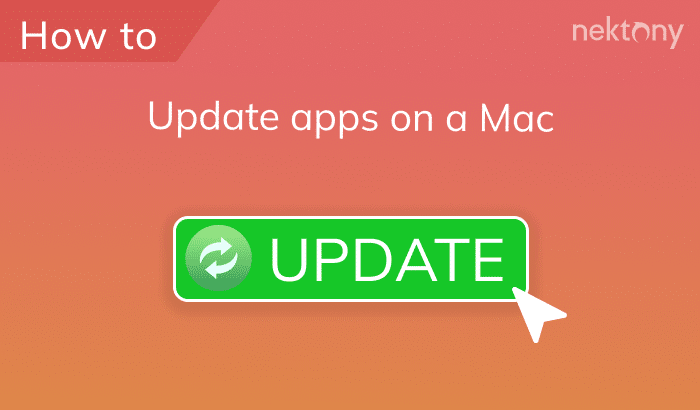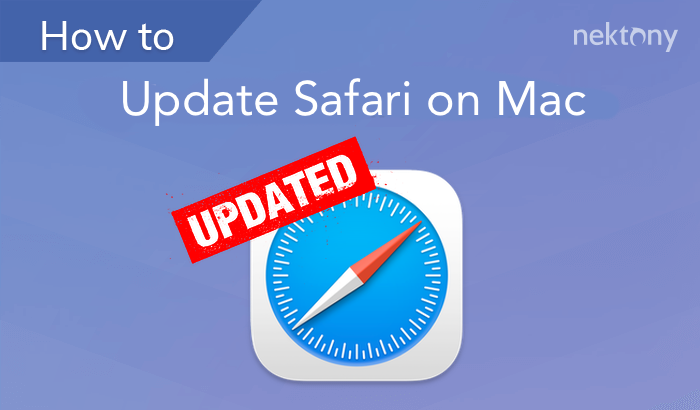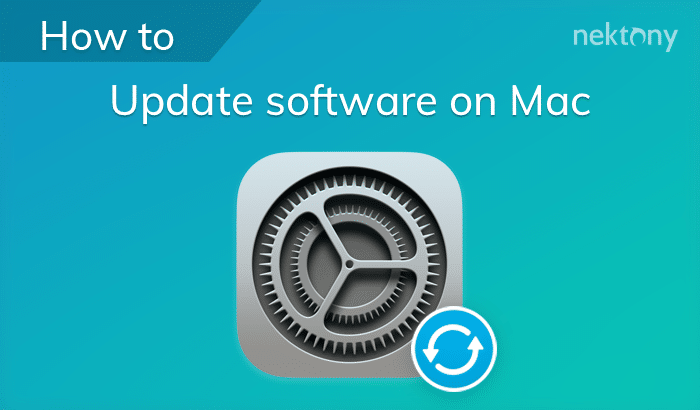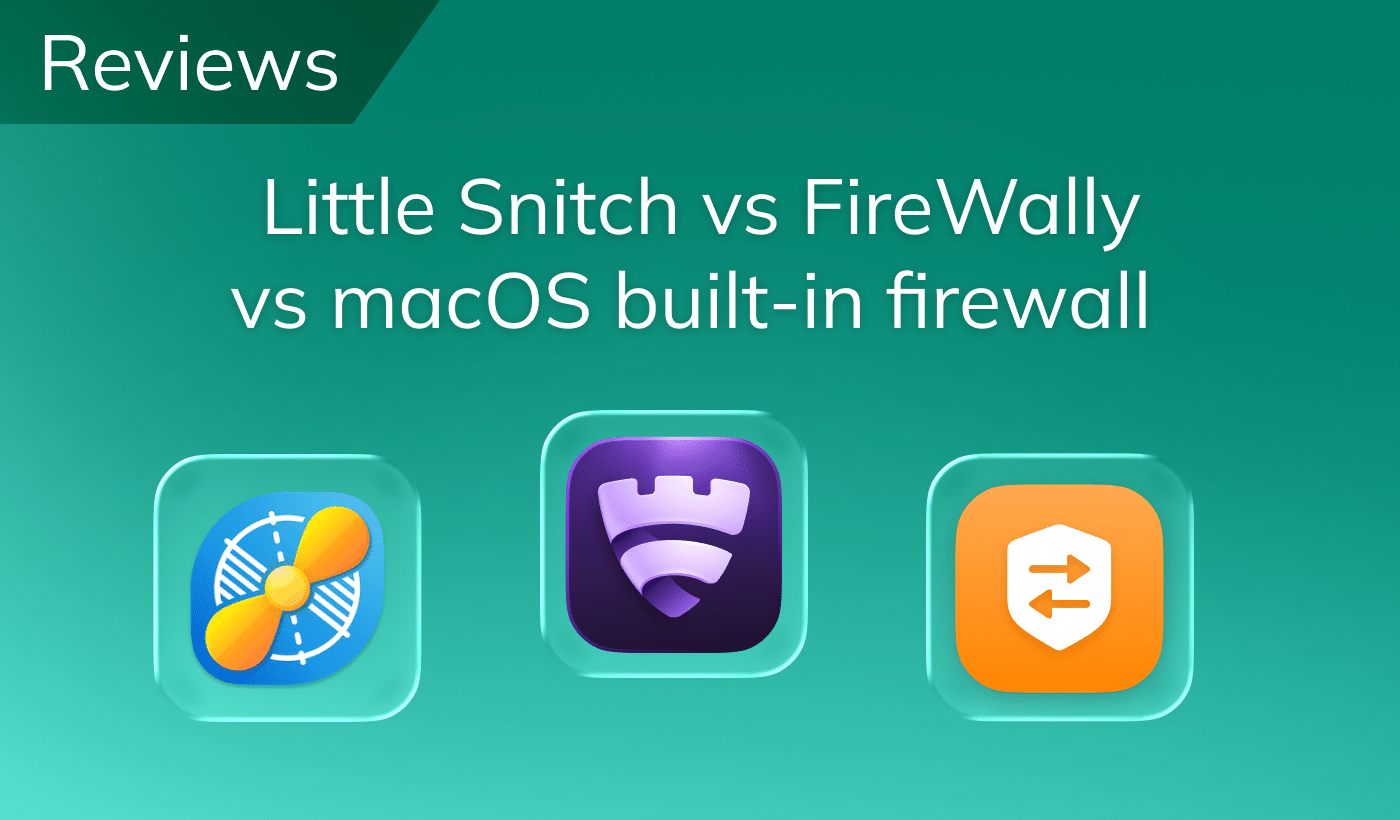January 29, 2026
Comparison guide: Top best Mac app updaters in 2026
Many Mac users have 100+ apps installed, with about 20 of them in daily usage. I’m not far behind, it’s closer to 90 apps living on my Mac. Now do the math: an ordinary app gets an update once a month. That’s easily 25+ updates waiting for your attention.
And let’s be honest, updates always pop up when you are mid-task, mid-call, or mid-flow. You click Later, and then forget. And suddenly you’re running outdated apps that are slower, buggier, and less secure than they should be. I’ve been there. The way out?
Software to update apps on Mac. It centralizes all those updates into one dashboard, making it a fast, controlled workflow. I picked six widely used updaters.
This overview will show what tools for updating Mac apps exist, what role each tool plays, and what kind of user it fits, so you can decide what to opt for. As a perk, you’ll get some tips on updating apps on Mac without third-party tools.
Why do you need to update apps on a Mac?
Outdated apps aren’t just annoying with a lot of pop-ups. It’s like leaving the door half-open for bugs to slip in, for performance to drop, and for malware to sneak into your Mac. Here are more reasons to consider why updating apps is important:
- Improved performance. Keep your Mac running smoothly through updates that optimize app performance, prevent crashes or slowdowns, and increase stability.
- Optimized battery usage. Extend your MacBook’s battery life with app updates to reduce energy consumption.
- Reduced storage usage. Free up space on your Mac by accepting updates, as some of them shrink file sizes or clear redundant data.
- Enhanced security. Protect your Mac from hackers, malware, and cyber threats by staying updated, which blocks known security exploits targeting older versions.
- Preventative maintenance. Update apps regularly and avoid potential issues by addressing vulnerabilities or bugs early before they cause bigger problems.
- Access to new features. Get new functionalities and tools with updates improving user experience and productivity.
The way I tested updaters for Mac apps
In order for you to pick the right tool for updating Mac apps, I tried five well-known Mac app updaters on a MacBook Pro M3 running on macOS Tahoe 26. I aimed to get you familiarized with what each tool feels like before installing it.
In my analysis, I paid attention to the following aspects:
- Price and trial options. How much it costs and if there’s a free trial to test.
- Scan speed. How fast the app detects outdated software.
- Updates found. How many apps each tool spotted as outdated.
- Ease of use. How many clicks it takes and how clear the interface is.
- Extra features. What else the tool can do, such as uninstall, clean, or protect a Mac.
- User experience. Whether the workflow feels smooth or cluttered.
- Target audience. Who this or that tool is for.
Comparison table of top Mac app updaters
|
|
||||||
|---|---|---|---|---|---|---|
| Price | $14.95/year | $40.20/year | $0 | $71.40/year | $0 | $9.99/one-time |
| Rate | 4.8 (Truspilot) |
4.7 (Truspilot) |
4.9 (AlternativeTo) |
4.3 (Truspilot) |
n/a Open-source |
n/a New tool |
| Trial |
2 days
|
7 days
|
(free)
|
7 days
|
(free)
|
14 days
|
| Scan speed (for 88 apps) |
4 seconds | 18 seconds | 30 seconds | 11 seconds | 4 seconds | 9 seconds |
| Apps found to update | 14 | 7 | 17 | 8 | 7 | 13 |
| Minimal clicks |
More complex
|
Depends on app
|
More complex
|
More complex
|
||
| Delete apps and residuals | ||||||
| Reset apps | ||||||
| Manage startup apps | ||||||
| Manage app extensions | ||||||
| Set default app to open files | ||||||
| Total | Affordable app manager, updater, and cleaner | System optimizer with app updates | Dedicated Mac app updater only | Security, cleaning, and updates | Free lightweight Mac app updater | Updater-only tool with advanced controls |
App Cleaner & Uninstaller: Best for all types of users
|
|
Subscription: $14.95/year |
|---|---|
| Compatible with: macOS 10.13 or newer | |
| Update frameworks: AppStore, Sparkle, Electron, Squirrel, Homebrew, GitHub apps |
App Cleaner & Uninstaller is more than just an updater; it’s an award-winning full app manager designed for efficient app management. It combines app updating, uninstalling, startup, and extension management in one. Recognized for its intuitive design, which stands for a balanced mix of key features that keep Mac clean, organized, and up to date.
It’s famous for the few-click way to update, manage, and uninstall applications on Mac.

While its core functionality is to delete applications along with remaining files, this tool has a nice KPI in updating and is capable of updating all applications in one batch.
A key advantage of App Cleaner & Uninstaller is its handling of App Store apps. With macOS Tahoe 26.1, most updaters can only link to the App Store instead of installing updates themselves. App Cleaner & Uninstaller still performs App Store updates inside its own interface, which simplifies large update batches.
It stands out by also allowing you to manage startup apps, extensions, and even set default apps for different file types. Simple, impressive, outcome-oriented.
Pros:
User-friendly interface
Helpful extra features - app and leftovers deletion, app reset, management, cache clearance, extensions removal
Affordable price
Cons:
No alerts or menu-bar badge when new updates are available
Only a 2-day free trial
CleanMyMac: Best for bundled Mac maintenance
|
|
Subscription: $40.20/year |
|---|---|
| Compatible with: macOS 11 or newer | |
| Update frameworks: AppStore and Sparkle-based apps |
CleanMyMac is one of the most popular Mac optimization suites, with app updates being just one part of its toolbox. It’s designed to do a bit of everything: cleaning junk files, improving performance, protecting against malware, and more.
The tool spreads its features across eight tabs. And you have to scan each category. That makes it detailed, but not as effortless as tools built just for updates, which adds one more move to each feature flow. A cool thing I found about this tool is its skin.

The updater is part of a broader system optimizer. So, it’s not its strength. Beyond updates, it frees up RAM, deletes applications, and bundles it with junk cleaning, speed optimization, and malware removal. Holistic, complex, efficient.
Pros:
Good looking design
Rich in optimization, protection, and clearance utilities
Cons:
Pricey compared to others
Workflow can feel heavier – you often need to scan each section separately
The least number of apps found to update
MacUpdater (discontinued): Best for legacy update workflows
|
|
Subscription: Free |
|---|---|
| Compatible with: macOS 13.0 or newer | |
| Update frameworks: AppStore, Sparkle, Electron, Squirrel, Homebrew, GitHub apps | |
| Status: ❌ discontinued on 01-01-2026 |
MacUpdater used to be a prime ‘do one thing well’ app. Its single purpose was to find outdated apps and help you install updates without distractions or extra features.
Using it felt old-school in a good way. One window, one list, and a progress bar. The scans weren’t that fast, but the results were often deeper than expected, catching updates other tools missed.
As of January 1, 2026, that story ends. MacUpdater officially discontinued support and maintenance, leaving long-time users to look elsewhere. The final release, version 3.5.0, is still available and now free to use indefinitely.
Still, it runs without updates and relies on a limited database (the last update was on December 31, 2025). And based on the version history, the update database will remain active until December 31, 2026, after which the app will likely no longer find updates. Even now, it already gives false update results, e.g., agent updates that can’t be updated.

I’m gonna miss that tool for its straightforward one-click or automatic updating, and hope for its comeback soon.
Pros:
Free final version
Simple, distraction-free interface
Historically strong update detection
Cons:
Discontinued and unsupported (will be active until 12/31/2026)
Outdated update database + false updates (last database update on 12/31/2025)
Slower scan times
MacKeeper: Best for full-suite Mac protection
|
|
Subscription: $71.40/year |
|---|---|
| Compatible with: macOS 10.11 or newer | |
| Update frameworks: AppStore and Sparkle-based apps |
MacKeeper is like a multi-app for your Mac – except it sometimes feels like it’s trying to pack in too many tools at once. Besides the updater, you’ll find antivirus, VPN, ad blocker, memory cleaning, duplicate finder, and more. It’s all there, in one big dashboard.
So, the fact that the user interface is quite busy caught my eye. Nevertheless, the app updater works reasonably well. It shines if you need more than just updating – a full-featured suite for Mac maintenance and security. And the price reflects that – it’s the highest.

Another concern is about the process, though. You have to start a new scan for each tab, which makes it harder, feels repetitive, and interrupts the flow of completing your tasks. Again, the set of functionality is impressive. Multifunctional, resource-intensive, costly.
Pros:
Fast scan speed
A bunch of functions like VPN, antivirus, ad blocker, duplicates finder, cleanup, uninstaller
Cons:
Some detected updates don’t actually exist
The most expensive tool in the lineup + free version pushes upgrade prompts
Crowded interface with many tabs, some features feel overlapping
Latest: Best for free app updates and casual users
|
|
Subscription: $0 |
|---|---|
| Compatible with: macOS 10.15 or newer | |
| Update frameworks: AppStore and Sparkle-based apps |
Latest is the lightweight option. It’s totally free, minimal, and focuses only on updates. Open the tool, select an app, and click update. No pop-ups, no extra clutter.
During my tests, the scan speed was lightning quick – the fastest of all five tools. But the number of apps found to be updated was in the middle. The control panel looks clean.

So, that simplicity is also its weakness. It won’t detect as many updates as the paid apps, and you won’t find any additional features like uninstalling or cleaning. But if you want something quick and simple without spending a dime, Latest delivers exactly that. Free, fast, elementary.
Pros:
100% free
Fastest scan
One simple window – no confusion
Cons:
No extra features
May miss updates compared to paid tools
Interface is barebones
Updatest: Best for Terminal-friendly workflows

|
Subscription: $9.99/one-time |
|---|---|
| Compatible with: macOS 15.0 or newer | |
| Update frameworks: AppStore, Sparkle, Electron, Squirrel, Homebrew, GitHub apps |
Updatest feels like a tool built for developers or people who don’t panic when they see Terminal. The first time I launched it, the app asked me to install two utilities via the command line.
It detects updates well, but for many apps, you still have to open the app itself or use Terminal to complete the update. App Store updates also require switching to the App Store instead of happening inside the app.

If you’re comfortable tweaking filters, updating logic, and system paths, Updatest gives you a lot of flexibility. It’s actively maintained, and currently in beta, which already hints at its target audience.
Pros:
Advanced filters and customization
Supports multiple update frameworks
Frequent developer updates
Cons:
Terminal setup may freak out new users
Update process may require manual steps
Complex settings may be overwhelming
Bonus: How to update apps on Mac without additional software
You don’t always need third-party tools to keep apps fresh. macOS itself gives you ways to handle updates. Some apps are tied to System Settings, some live in the App Store, and others have their own Check for Updates button built in. It’s a bit scattered, but it works if you prefer the native way.
How to check updates in System Settings
Before macOS Mojave (10.14) in 2018, software updates for the operating system were handled through the Mac App Store. In September 2018, with the release of macOS Mojave, Apple moved the software update back to where it was in earlier OS versions: System Settings.
In System Settings, you’ll only see updates for macOS itself and the built-in apps that ship with it. This includes Safari, Mail, Notes, FaceTime, Calendar, Contacts, and system frameworks that other apps rely on. Security patches also come through here. Here’s how to update this way:
- Open System Settings.
- Select General in the left sidebar → Software Update.
- Click the button that shows up – it could be Check for Update, Update Now, Update Tonight, or Restart Now, depending on what’s ready.

How to check updates in the software menu
Some apps you install from the web have a built-in updater. You’ll usually find it in the menu bar.
- Open the app you want to update.
- In the menu bar, click App Name next to the Apple logo.
- Select Check for Updates.
- Follow the prompts to install the new version.

How to check updates using App Store
All apps you downloaded from the Mac App Store stay connected to it. Updates appear automatically, or you can install them on demand.
- Launch the App Store.
- Sign in with your Apple ID, if not.
- Select Updates from the sidebar.
- Click the Update button in the respective app to update individual apps one by one, or click Update All to cover them all in one shot.

Final update
So, you saw the spectrum – from free little helpers to heavy hitters that keep your entire system fresh. They all take the pain of updating apps manually away and deal with apps from the App Store and developer sites. But different tools, different vibes, you know.
Each tool plays its part in its own way.
| Tool | Best for users who |
|---|---|
| App Cleaner & Uninstaller | Want one tool to manage, clean, and update apps. |
| CleanMyMac | Want a full Mac optimization suite with updates included. |
| MacUpdater | Are okay using a discontinued tool, which gave best update results in its prime. |
| MacKeeper | Value security features as much as updates and don’t mind paying more. |
| Latest | Want a free, lightweight, no-frills app updater. |
| Updatest | Want a powerful scanner and don’t mind Terminal and manual steps. |






